
The Streets is an English musical project led by vocalist and multi-instrumentalist Mike Skinner. The project was founded in the early 90s, while Skinner was still a teenager; however, no music would formally eventuate until the early 2000s. In the initial run of The Streets, the project released five studio albums: Original Pirate Material (2002), A Grand Don't Come for Free (2004), The Hardest Way to Make an Easy Living (2006), Everything Is Borrowed (2008) and Computers and Blues (2011). The Streets also released a string of successful singles during this time, which reached the Top 40 on the UK Singles chart – including "Has It Come to This?", "Fit but You Know It", "Dry Your Eyes", "When You Wasn't Famous" and "Prangin' Out". After disbanding The Streets in 2011, Skinner pursued several other musical projects before ultimately reviving the moniker in 2017. A mixtape, None of Us Are Getting Out of This Life Alive, was released in 2020. The Streets' sixth studio album, The Darker the Shadow the Brighter the Light, was released in September 2023.

Julian David Cope is an English musician and author. He was the singer and songwriter in Liverpool post-punk band The Teardrop Explodes and has followed a solo career since 1983 in addition to working on musical side projects such as Queen Elizabeth, Brain Donor and Black Sheep.

(Pronounced 'Lĕh-'nérd 'Skin-'nérd) is the debut studio album by American rock band Lynyrd Skynyrd, released on August 13, 1973. Several of the album's tracks remain among the band's most well-known: "Gimme Three Steps", "Simple Man", "Tuesday's Gone", and "Free Bird", the last of which launched the band to national stardom.

Peggy Suicide is the seventh album by Julian Cope. It is generally seen as the beginning of Cope's trademark sound and approach, and as a turning-point for Cope as a maturing artist.

Skellington is the fifth solo album by Julian Cope, released in November 1989 as a semi-official bootleg for fan club members only. Originally released on Cope's own CopeCo label, it was later reissued in March 1990 through Zippo Records.
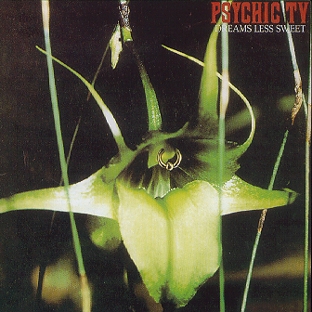
Dreams Less Sweet is the second studio album by English experimental band Psychic TV, released in 1983. It was the last Psychic TV album to feature co-founder Peter "Sleazy" Christopherson.

Jehovahkill is the eighth album by Julian Cope, released in 1992. After the critical success of Peggy Suicide (1991), Cope's idea for Jehovakill was to incorporate a krautrock attitude into his music. He began recording the album with musicians Rooster Cosby and Donald Ross Skinner, while co-producing it with the latter. The sessions yielded what Cope considered to be his most sonically experimental material to date. Originally titling the record Julian H. Cope, he sent an eleven track version to Island Records, who initially rejected its release, but gave Cope extra recording sessions for the album. During the extra sessions, in which six extra songs were recorded, the album became harder and was retitled Jehovahkill.

Interpreter is the thirteenth solo studio album, and twentieth album overall by English rock musician Julian Cope, released by Echo Records in October 1996. Particularly inspired by Cope's involvement with the Newbury bypass protest, the record features socially and environmentally-concerned lyrics. The musician worked with numerous guest musicians, including substantial contributions from Thighpaulsandra, resulting in a sprawling album that extends the pop style of 20 Mothers (1995) while incorporating styles of glam pop, space rock, orchestral pop, with string arrangements and electronic overtones. The record is split into two separate parts, "Phase 1" and "Phase 2".

20 Mothers is the twelfth solo album by Julian Cope, released in August 1995 by Echo. The album's sub-title is "Better to Light a Candle Than to Curse the Darkness".

Rite is an ambient album by Julian Cope and Donald Ross Skinner, released in February 1993 on Cope's own Ma-Gog label. It is the first album in the Rite series and has been described as "a series of lengthy, mostly instrumental jamming freakouts influenced by both Krautrock and psychedelic funk." The album was available as mail-order only.
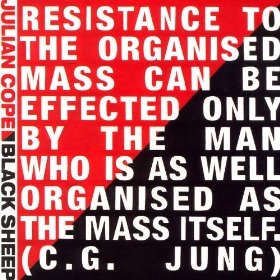
Black Sheep is a double album by Julian Cope, released on Head Heritage in 2008. It is Cope's twentyfourth solo album and features 11 protest songs across two half-hour CDs. Each CD represents "one side of an LP" with their own titles, Return of the Native and Return of the Alternative. Cope described the album as "a musical exploration of what it is to be an outsider in modern Western Culture".
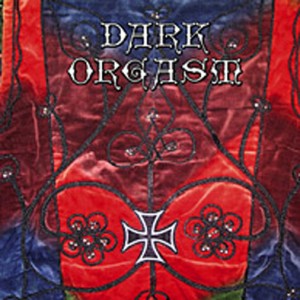
Dark Orgasm is the twenty-first solo album by Julian Cope, released in 2005. It contains eight songs of guitar-heavy hard rock split into two short CDs. Alexis Petridis of The Guardian described the album as "a roughly recorded Stooges-meets-prog concept album about atheism and feminism". It was dedicated to "Freedom and Equality for Women".
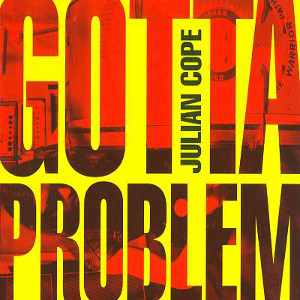
You Gotta Problem with Me is the twenty-third solo album by Julian Cope, released in 2007.
Donald Skinner is a guitarist, songwriter and producer primarily known for his work with Julian Cope. Skinner is commonly known by the name Donald Ross Skinner with the addition of the middle name of Ross attributed to him by Cope after Glenn Ross Campbell, the pedal steel player from The Misunderstood. He is currently a guitarist for Love Amongst Ruin and DC Fontana.
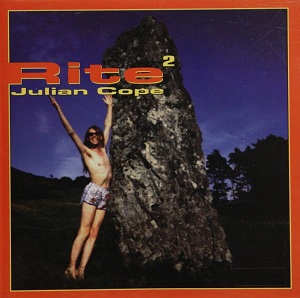
Rite² is an ambient music album by Julian Cope, released in 1997. It is technically Cope's fourteenth solo album, but is also the follow-up to the earlier album Rite and is the second in the Rite series.

Floored Genius 3 – Julian Cope's Oddicon of Lost Rarities & Versions 1978–98 is a rarities compilation album by Julian Cope, released in 2000 on Cope's own Head Heritage label.

The Skellington Chronicles is the tenth solo album by Julian Cope, released in June 1993 on Cope's own Ma-Gog label. It contains the previously released 1989 album Skellington and its sequel Skellington 2, released here for the first time. Skellington 2 was, like its predecessor, recorded in just two days on April 21–22, 1993.

Rite Now is the eighteenth solo album by Julian Cope, released in 2002. It is also the third album in the Rite series following the earlier albums Rite (1992) and Rite² (1997).
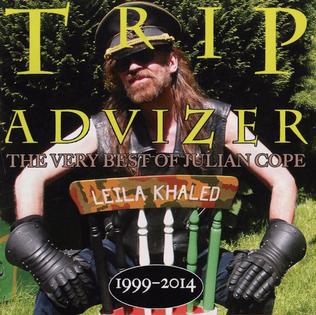
Trip Advizer – The Very Best of Julian Cope 1999–2014 is a compilation album by Julian Cope, released in January 2015 on Cope's own Lord Yatesbury label.
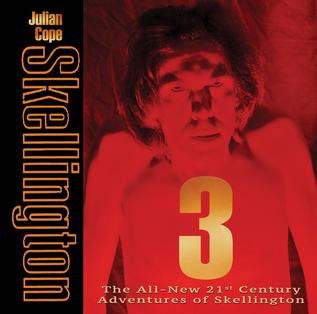
Skellington 3 is the thirty-second solo album by Julian Cope, released in April 2018. The album's sub-title is "The All-New 21st Century Adventures of Skellington". It is the third album in the Skellington series following the earlier albums Skellington (1989) and Skellington 2 (1993).



















